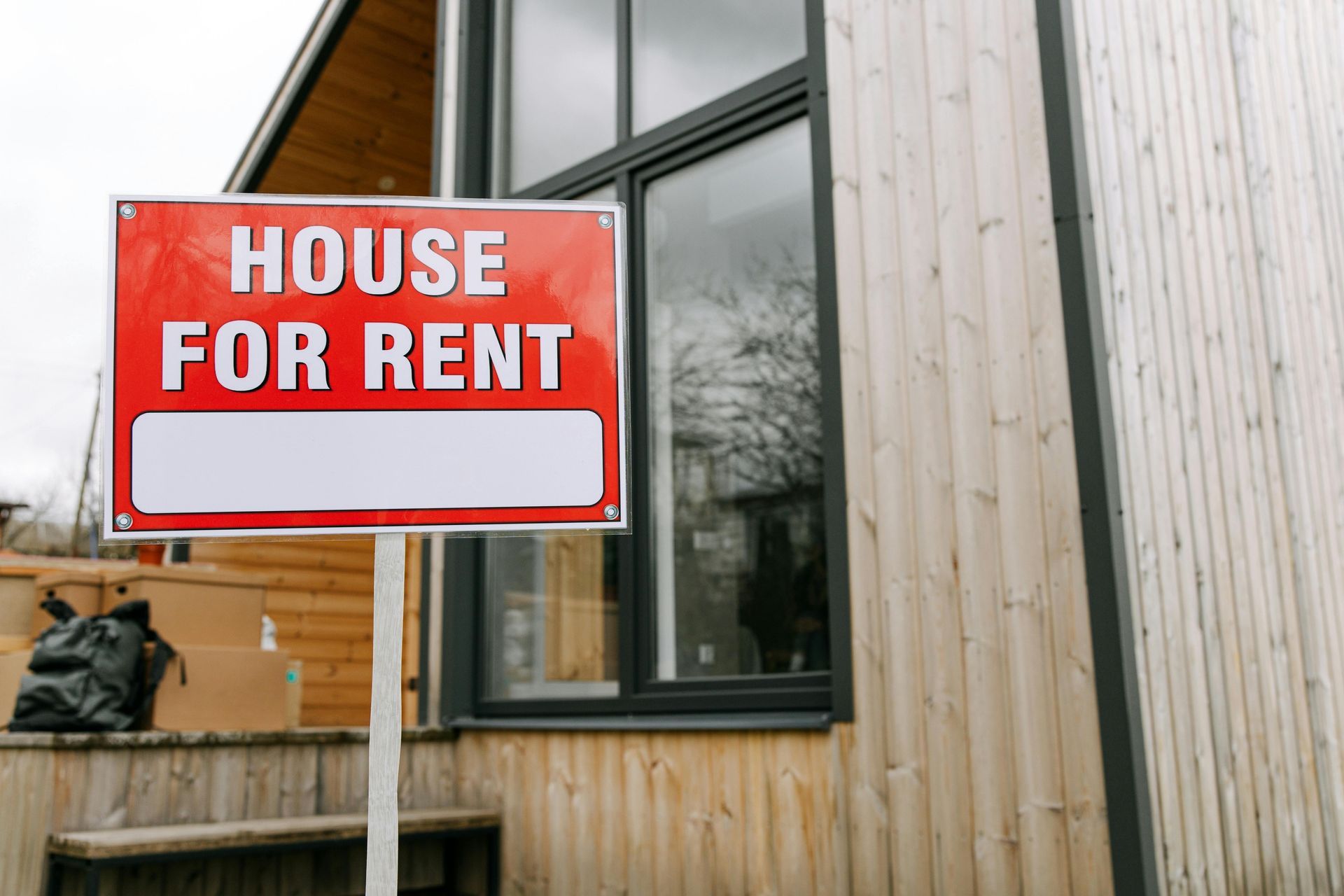Understanding Reverse Mortgages
The reverse mortgage is a unique financial tool designed to help older homeowners convert their home equity into cash without having to sell their property or make monthly mortgage payments.

Turning Your Home into a Retirement Asset
For many homeowners approaching their golden years, their property represents more than just a place to live; it's a significant financial asset, a nest egg built over years of mortgage payments and appreciation. As retirement beckons and fixed incomes become the norm, accessing the equity accumulated in that home can be a tempting prospect, a way to supplement retirement funds, cover unexpected expenses, or simply enjoy greater financial flexibility. Enter the reverse mortgage, a unique financial tool designed to help older homeowners convert their home equity into cash without having to sell their property or make monthly mortgage payments. While this concept might seem like a dream come true for those seeking financial security in their later years, it's crucial to understand the intricacies of reverse mortgages before embarking on this financial path.
What Exactly is a Reverse Mortgage?
Unlike a traditional mortgage, where you make monthly payments to the lender to gradually pay off your loan and build equity, a reverse mortgage operates in, well, reverse. With a reverse mortgage, the lender makes payments to you, drawing upon the equity you've accumulated in your home over the years. This allows you to access a portion of your home's value while retaining ownership and the right to live in your home, essentially turning your home into a source of income during your retirement years.
Typically available to homeowners aged 62 and older, reverse mortgages come in various forms, each with its own set of terms and conditions. The most common type is the Home Equity Conversion Mortgage (HECM), insured by the Federal Housing Administration (FHA). These government-insured loans offer certain protections and benefits, making them a popular choice for many seniors. Other options include proprietary reverse mortgages, offered by private lenders, which may offer more flexibility but also come with potentially higher costs and fewer consumer protections. There are also single-purpose reverse mortgages, typically offered by government agencies or non-profit organizations, which are designed for specific purposes like home repairs or property taxes.
How Does a Reverse Mortgage Work?
The mechanics of a reverse mortgage can seem a bit complex at first glance, but the underlying principle is relatively straightforward. Essentially, you're borrowing against the equity you've built up in your home, and the lender makes payments to you based on a percentage of that equity. The amount you can borrow depends on several factors, including your age, the current appraised value of your home, and prevailing interest rates. The older you are and the more valuable your home, the more you can typically borrow.
The funds from a reverse mortgage can be received in various ways, offering flexibility to suit your individual needs and preferences. You might choose to receive a lump-sum payment, providing a significant influx of cash upfront. Alternatively, you might opt for regular monthly payments, providing a steady stream of income to supplement your retirement funds. Another option is a line of credit, which allows you to access funds as needed, providing a financial safety net for unexpected expenses or opportunities. You can even choose a combination of these disbursement methods, tailoring the loan to your specific financial goals and circumstances.
It's important to understand that while you don't make monthly mortgage payments with a reverse mortgage, the interest on the loan accrues over time, adding to the loan balance. This means that your equity in the home decreases as the loan balance grows. The loan becomes due and payable when you sell the home, move out permanently, or pass away. At that point, the loan is typically repaid through the sale of the home, with any remaining equity going to you or your heirs.
Who Qualifies for a Reverse Mortgage?
Qualifying for a reverse mortgage involves meeting certain criteria to ensure you're a suitable candidate for this type of loan. First and foremost, you must be at least 62 years old, as these loans are specifically designed for older homeowners seeking to access their home equity during their retirement years. You must also own your home outright or have a low mortgage balance, as the amount you can borrow is based on your available equity. The home must be your primary residence, meaning you must live in it for the majority of the year.
In addition to these basic requirements, you may be required to undergo a financial assessment to demonstrate your ability to meet ongoing financial obligations, such as property taxes, homeowners insurance, and home maintenance. This assessment helps ensure that you can comfortably manage these expenses while also benefiting from the reverse mortgage proceeds.
Before you can proceed with a reverse mortgage, you must also complete a counseling session with a HUD-approved reverse mortgage counselor. This counseling session is designed to educate you about the terms and implications of the loan, ensuring you understand the costs, benefits, and potential risks involved. This mandatory counseling session helps protect borrowers and ensures they make informed decisions about their financial future.
Costs and Fees
While reverse mortgages can provide valuable financial benefits, it's important to recognize that they are not free money. They come with various costs and fees that can significantly impact the overall cost of the loan.
One of the primary costs is the origination fee, charged by the lender to process the loan. This fee can vary depending on the lender and the loan amount. You'll also need to pay for an appraisal to determine the current market value of your home, as this value is used to calculate the amount you can borrow. Closing costs, similar to those associated with a traditional mortgage, include fees for title insurance, recording fees, and other closing expenses.
For HECMs, the most common type of reverse mortgage, you'll also pay an upfront mortgage insurance premium (MIP) and an annual MIP. This insurance protects the lender in case the loan balance exceeds the value of the home when it's sold. Finally, interest accrues on the loan balance over time, adding to the overall cost of the loan. The interest rate can be fixed or adjustable, and it's important to understand how the interest rate will affect your loan balance over time.
It's crucial to carefully consider these costs and factor them into your financial planning. You can choose to pay these costs upfront or have them rolled into the loan balance, but this will increase the overall cost of the loan and reduce the amount of equity available to you.
Benefits and Drawbacks
Reverse mortgages can provide significant benefits for older homeowners, but they also come with potential drawbacks that must be carefully weighed before making a decision.
On the plus side, reverse mortgages offer access to a portion of your home equity without requiring you to sell your home or make monthly mortgage payments. This can provide a valuable source of income during retirement, allowing you to supplement your Social Security benefits, cover unexpected expenses, or simply enjoy greater financial flexibility. The funds from a reverse mortgage can be used for various purposes, such as paying for healthcare expenses, making home improvements, or even taking that long-awaited vacation.
Another benefit is that the proceeds from a reverse mortgage are generally tax-free, as they are considered loan advances rather than income. This can be a significant advantage for those seeking to maximize their retirement income and minimize their tax burden.
However, it's important to acknowledge the potential drawbacks of reverse mortgages. The loan balance grows over time due to accruing interest, which can significantly reduce your equity in the home. This means that you or your heirs will have less equity to tap into or inherit when the home is eventually sold. The costs and fees associated with reverse mortgages can also be substantial, potentially eating into your available equity.
Furthermore, it's crucial to consider the impact a reverse mortgage might have on your heirs. The loan must be repaid when you sell the home, move out permanently, or pass away. This can reduce the inheritance your heirs receive or even require them to sell the home to repay the loan. It's important to have open and honest conversations with your family about your financial plans and how a reverse mortgage might affect their future.
Is a Reverse Mortgage Right for You?
Deciding whether a reverse mortgage is the right financial tool for you requires careful consideration of your individual circumstances, financial goals, and long-term plans. It's not a one-size-fits-all solution, and it's essential to weigh the potential benefits and drawbacks in the context of your unique situation.
Ask yourself some key questions: Do you need access to your home equity to achieve your financial goals? If you have other financial resources available, such as savings, investments, or retirement income, a reverse mortgage might not be necessary. Can you afford the costs and fees associated with a reverse mortgage? These costs can be significant and should be factored into your overall financial planning. What are your long-term plans for your home? If you plan to sell your home in the near future, a reverse mortgage might not be the most advantageous option. How will a reverse mortgage impact your heirs? Discuss your plans with your family and consider how a reverse mortgage might affect their inheritance or their ability to keep the home in the family.
It's also crucial to consult with a financial advisor and a HUD-approved reverse mortgage counselor to discuss your options and ensure you understand the implications of this financial decision. These professionals can provide personalized guidance, helping you navigate the complexities of reverse mortgages and make an informed decision that aligns with your financial goals and secures your financial future. They can help you assess your financial situation, explore alternative options, and understand the long-term implications of a reverse mortgage.
Reverse Mortgages: Considerations and Cautions
While reverse mortgages can be a valuable tool for some homeowners, it's important to approach them with caution and awareness. Here are some key considerations to keep in mind:
- Impact on Government Benefits: It's important to understand how a reverse mortgage might affect your eligibility for government benefits, such as Medicaid or Supplemental Security Income (SSI). The lump-sum payment or monthly disbursements from a reverse mortgage could potentially impact your eligibility for these need-based programs. Consult with a financial advisor or benefits specialist to understand the potential implications.
- Non-Borrowing Spouse Considerations: If you are married and your spouse is not a co-borrower on the reverse mortgage, their rights to remain in the home after your passing may be affected. It's crucial to understand these implications and ensure that your spouse's rights are protected.
- Home Maintenance and Property Taxes: Even though you don't have to make monthly mortgage payments with a reverse mortgage, you are still responsible for maintaining your home and paying property taxes and homeowners insurance. Failure to meet these obligations could lead to foreclosure.
- Scams and Predatory Lending: Unfortunately, the reverse mortgage market has its share of scams and predatory lending practices. Be wary of unsolicited offers, high-pressure sales tactics, or lenders who promise unrealistic benefits. Always do your research, compare offers from multiple lenders, and seek guidance from trusted professionals.
A Powerful Tool with Careful Consideration
Reverse mortgages can be a powerful tool for older homeowners seeking to access their home equity and enhance their financial flexibility in retirement. They can provide a valuable source of income, help cover unexpected expenses, and allow you to age in place comfortably. However, they are complex financial products with potential drawbacks that must be carefully considered. By understanding how reverse mortgages work, weighing the benefits and drawbacks, and seeking professional guidance, you can make an informed decision that aligns with your financial goals and secures your financial future.
Remember, a reverse mortgage is not a one-size-fits-all solution. It's a financial tool that should be carefully evaluated in the context of your individual circumstances, financial needs, and long-term plans. With careful consideration and informed decision-making, a reverse mortgage can be a valuable asset in your retirement planning toolkit, empowering you to enjoy your golden years with financial security and peace of mind.




